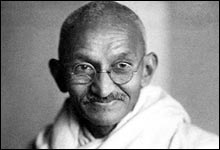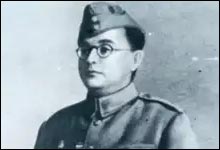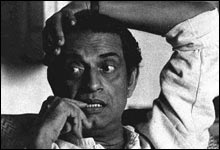GREAT INDIAN PERSONALITIES : Pandit Ravi Shankar

Robindra Shankar was born on 7th of April, 1920,in Benares. He was the youngest of the four brothers. His father, Shyam Shankar, was an eminent scholar, statesman, and lawyer. The young Shankar or "Robu" was raised by his mother in some poverty for his father's absence for most of his childhood. As his eldest brother, Uday Shankar, the legendary dancer established his own Indian dance troupe, in 1930,Robu, his mother and brothers moved to Paris to join the troupe.
In 1935, Ustad Allauddin Khan, an extraordinary virtuoso musician, commonly recognized as the founder of modern Hindustani classical music joined the troupe for a year. Captivated Shankar became "Baba" Allauddin Kahn's disciple in Maihar, Central India, when the troupe returned to India in 1938. For nearly seven years, he learned sitar according to the old guru-shishya approach. In 1941 he married Baba's daughter, Annapurna, and they had a son, Shubho, in 1942.
Ravi Shankar first concert was in 1939. In 1940, he began recitals on All-India Radio. His innovative "jugalbandi" duets played with the young Ali Akbar Khan, his guru's son, the master of the sarod, popularised him. After ending full-time training, Shankar joined the Indian People's Theatre Association(1945-46) in Bombay, where he contributed the score to the ballet India Immortal (1945), and the soundtrack music to two realist movies in 1946. He also composed a new tune for the national song, "Sare Jahan Se Accha," which has become a popular standard.
Shortly after India's independence, he put on two productions of the ballet, "The Discovery of India" (1947), based on books by J. L. Nehru. Shankar then become Director of Music at All-India Radio (1949-56). His experiments with new Vadya Vrinda ("National Orchestra") on Indian orchestral music attained him further fame. In this period, he composed and directed music for Satyajit Ray's celebrated Apu Trilogy.

In 1952, he played for the violin maestro Yehudi Menuhin in Delhi, starting an overwhelming passion for Indian music in him and a deep friendship between them. In late 1956, he first toured Europe and America as a solo sitarist and made a considerable impact. In 1958, he visited Japan as leader of a cultural delegation and played at the UNESCO Music Festival in Paris. Ever since, he has been a regular globe-trotting performer.
His talent for orchestral composition and love of stage spurred him on to a sequence of innovative musicals and ballets, including Melody and Rhythm. In 1962, he opened the Kinnara Music School in Bombay. As a classical soloist he interpreted traditional raga forms both from North of India and unusually that of South. He even composed a number of new ones many of which are popular ragas.
He continued to provide well-received film soundtracks in both the East and the West, including Kabuliwala in 1956 (named best film music director at the 1957 Berlin Film Festival), Ralph Nelson's Oscar-winning Charly (1968) and Richard Attenborough's multi-Oscar winning Gandhi (for which he received an Academy Award nomination for the music).
He continued to provide well-received film soundtracks in both the East and the West, including Kabuliwala in 1956 (named best film music director at the 1957 Berlin Film Festival), Ralph Nelson's Oscar-winning Charly (1968) and Richard Attenborough's multi-Oscar winning Gandhi (for which he received an Academy Award nomination for the music).
Shankar leaped into the popular consciousness after meeting with and teaching Beetle George Harrison in 1966. His image changed from highly-respected classical musician to the hippie idol of Monterey and Woodstock.
His first book, "My Music, My Life," which was the subject of the film, "Raga", traced his roots in India and documented his impact in America. He consequently became the Visiting Professor at City College, New York, for the fall semester of 1967. He was probably the first to bring other Indian soloists to the West, as in the case of 1968's Festival of India concerts. Shankar directed and the composed a performance of the first-ever Concerto for Sitar written for a western orchestra in London (1971). It featured the London Symphony Orchestra, conductor Andre Previn, and Shankar himself as a soloist. He wrote a second such piece in 1981, this time in tandem with the New York Philharmonic and its conductor, Shankar's close friend Zubin Mehta.
Harrison and Shankar inspired the 1971 Concerts for Bangladesh, the first major music charity event. The soundtrack won Shankar his second Grammy, for Best Album of 1972. Harrison continued to assist in the discovery of Indian music by the West, playing the Shankar Family and Friends (1973) and producing Music Festival From India (1975). This featured a host of the finest soloists from India. They also shared the billing on their "Dark Horse" tour of the USA and Canada in late 1974. After this except his visit Japan, his international experiments reduced, There he write for, and record with, shakahachi player, Hozan Yamamoto, and koko virtuoso, Susumii Miyashita for the album, East Greets East (1978).
In 1982 he achieved the international respect being appointed the Artistic Director of the Asian Olympics, held in Delhi. In 1985, he undertook a further Indo-Japanese work, performed live in Los Angeles. On the album, Tana Mana (1987), he explored the possibilities of new synthesizer and emulator technology and merged it with Indian instruments, vocals, rhythms, and artists, as well as with dancers from the Bolshoi, in a stunning live performance in the Kremlin. The recording became one of his finest albums, Ravi Shankar Inside The Kremlin (1989). In April 1989, he performed his Sitar Concerto 1 on tour in Europe and India with Zubin Mehta and the European Youth Orchestra, following up with the album, Passages (1990), another electronic collaboration, this time with founder of minimalism, Philip Glass. He also performed in the production, in Britain (1989) and India (1991), of a new "musical theatre" he specially composed, Ghanashyam.
Countless honors have been bestowed upon India's unofficial cultural ambassador foremost among which have been the Padma Vibhushan (India's highest civilian award, 1981),the Megsaysay, the Grand Prize at the Fukuoka Asian Cultural Prizes (1991), France's Commandeur de l'Ordre des Arts et des Lettres (1985), and eleven honorary doctorates. He also served a six-year term (1986-92) in India's parliamentary upper chamber, the Rajya Sabha, and performed for the British Royal Family before the state banquet in honor of Indian President Venkataraman (1990). Famed as the man who popularized Indian music in the West, his life has been devoted to mutual exchange and enlightenment between all nations of the world. George Harrison dubs him the "Godfather of World Music."


